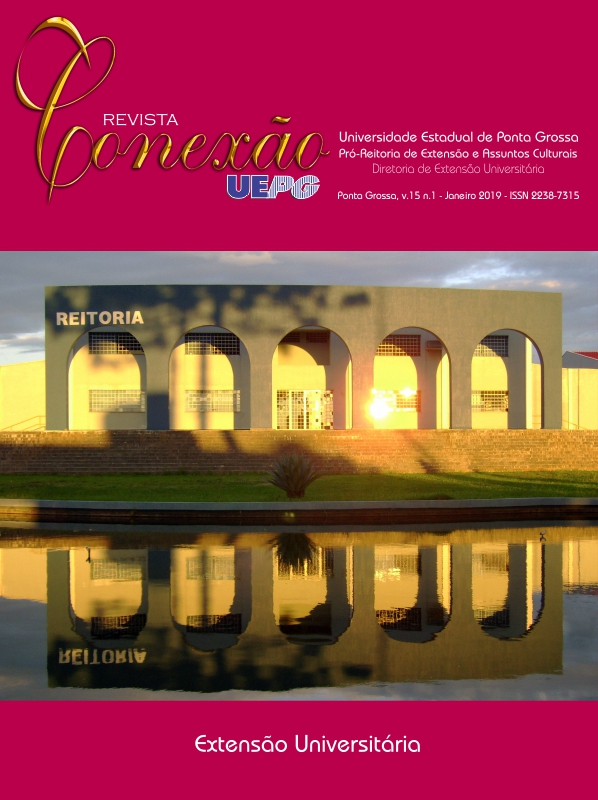CODESIGN AND EMPOWERMENT: PRODUCTION OF GAMES WITH COCONUT BREAKERS AND THEIR CHILDREN IN SÃO CAETANO - MARANHÃO
DOI:
https://doi.org/10.5212/Rev.Conexao.v.15.i1.0002Keywords:
Codesign, Empowerment, Correspondences, Tools.Abstract
This article presents the results of the development of collaboration tools between designers and an extrracivist babaçu coconut community from Matinha, Maranhão that are part the outreach project called Maranhão´s conography: codesign and empowerment among designers and craftswomen and the production of images in the field. Based on the theoretical-methodological reflections of Design Anthropology, it was proposed, through the collective creation of a game, to work on abstract and theoretical questions about the parameters for the empowerment of the World Economic Forum report. The practice of collective work, as a correspondence practice has brought localized and synchronic answers to abstract issues such as economics, politics, health, and education. The production of images in the field, with the co-researchers (craftswomen and their children) brought the daily routine to the game, producing debates, creating a common space for the negotiation of problems and obstacles to empowerment and awareness of such issues.
Downloads
References
CARDOSO, R. Design para um mundo complexo. São Paulo: Cosac Naify, 2012. 264p.
ESCOBAR, A. Autonomía y diseño. La realización de lo comunal. Popayán: Universidad del Cauca. Sello Editorial, 2016. 281p.
FÓRUM ECONÔMICO MUNDIAL (FEM). 2005. Empoderamento de mulheres. Avaliação das disparidades globais de gênero. Genebra: Fórum Econômico Mundial, 30 p.
HUNT, J. Prototyping the social. Temporality and speculative futures at the intersection of design and culture. In: CLARKE, Alison (Ed.). Design Anthropology: object cultures in transition. London: Bloomsbury, 2017. p.87-100.
INGOLD, T. Anthropology and/as education. London: Routledge, 2018. 128p.
______. Chega de etnografia! A educação da atenção como propósito da Antropologia.Educação, Porto Alegre, v.39, n.3, set-dez. 2016. p.404-411.
______. Making: anthropology, archeology, art and architecture. London and New York: Routledge, 2013. 163p.
MANZINI, E. Design, when everybody designs: An introduction to design for social innovation. London; Cambridge: The MIT Press, 2015. 241 p.
NORONHA, R. et al. Cirandas de saberes: percursos cartográficos e prática artesanal em Alcântara e Baixada Maranhense. São Luís: EDUFMA, 2017b. 136p.
______et al. Design em jogo: cocriação, prototipagem e tangibilização de futuros possíveis. In: CONGRESSO BRASILEIRO DE PESQUISA E DESENVOLVIMENTO EM DESIGN, 12., São Paulo, 2016 [Blucher Design Proceedings, v. 9, n. 2]. Anais... São Paulo: Blucher, 2016. p. 1580-1592.
GUNN, W.; OTTO, T.; SMITH, R. C. (Eds.). Design Anthropology: theory and practice. London and New York: Bloomsbury, 2013. 267 p.
PINK, S. Doing visual ethnography. Images, media and representation in research. London: Sage, 2013. 232p.
PORTELA, R. Correspondências por meio de ferramentas de design: artesanato e empoderamento (ou aprisionamento). Dissertação (Mestrado em Design) - Universidade Blind Review, 2018. 129p.
______ et al. Produção artesanal pela colaboração entre designers experts e difusos: o caso do Projeto Pindova – MIQCB. In: MOURA, F.; TEIXEIRA, T.; KELLER, P. Trabalho em contexto de crise: regulação, informalidade e tendências setoriais. São Luís: EDUFMA, 2016. p.165-185.
SALEN, K.; ZIMMERMAN, E. Regras do jogo: fundamentos do design de jogos: principais conceitos. v. 1. São Paulo: Blucher, 2012. 168p.
Downloads
Published
Issue
Section
License
a) Authors retain copyright and grant the journal right of first publication with the work simultaneously licensed under a Creative Commons Attribution License that allows others to share the work with an acknowledgement of the work's authorship and initial publication in this journal.
b) By submitting an article to the Revista Conexão UEPG and having it approved, the authors agree to assign, without compensation, the following rights to the Journal: the rights of first publication and the rights to redistribute the article and its metadata to the indexing and reference services that the editors deem appropriate.
c) Readers are free to transfer, print out and use the articles published in the Journal, as long as there is always explicit mention to the author(s) and to the Revista Conexão UEPG and as long as there is no alteration of the original work. Any other use of the texts needs to be approved by the author(s) and by the Journal.






